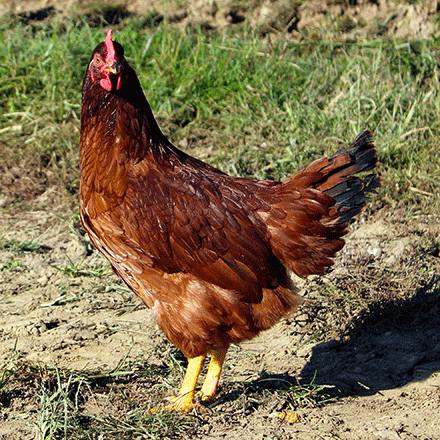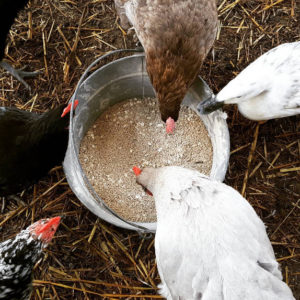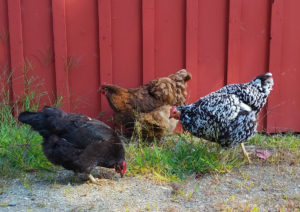Editor’s Note: We brought back chicken expert Lisa Steele to share with you essential info for raising your own flock. Pull up a chair – it’s going to be good!
Raising a small flock of backyard chickens can be a rewarding and exciting experience for the whole family, but before you dive in, there are a few things you should know.
1. Check the Laws.
Each town and municipality has their own rules about backyard chickens ranging from how many are allowed, if roosters are allowed or only hens, and whether permits are needed for the chickens or their coop. Before you bring home your chicks, you’ll want to know the laws where you live. And it’s best to get them in writing.
2. You Don’t Need a Rooster.
Speaking of roosters, did you know that you don’t need a rooster in order for your hens to lay eggs? They’ll lay eggs for you whether or not there’s a male around. The eggs just won’t be fertile and will never hatch into chicks.
3. The Right Size Coop.
Your chickens will need a safe coop to sleep in and lay their eggs. You can build, buy or repurpose, but be sure to allow for 3-5 square feet of floor space in the coop for each chicken. You will also need 8” of roosting bar per chicken and one nesting box for every 3-4 hens in which to lay their eggs.
4. Hens Only Lay for a Few Years.
Speaking of eggs, a chicken will only lay regularly for about 2-3 years. After that, her production will drop by about 20% a year until she stops altogether, but with proper care and protection from predators, a chicken can live to be ten plus years old.

5. Hens Don’t Lay Year Round.
Although during the prime spring and summer laying months, good layers will lay an egg every day, no chicken lays year round. Once the days get shorter in the fall, they will start “molting,” which means dropping their feathers and growing in new ones for winter. Most hens stop laying during the molt. The shorter days also mean they aren’t getting the 14 hours of daylight needed to stimulate the ovaries, so you might not see eggs again until spring. (You can add light to your coop to keep your chickens laying through the winter, but that doesn’t give their bodies that natural break).
6. Eggs Don’t Need to be Washed.
Commercial eggs are washed before being shipped off to the grocery store, but eggs from your own flock don’t need to be – and shouldn’t be – washed until just before you use them. Every egg is laid with an invisible protective coating called the “bloom” that prevents air and bacteria from entering the egg through the pores in the shell. Washing removes that coating, so best to save the washing for later. And when you do wash your eggs, a gentle rinse under warm running water should be sufficient.
7. Eggs Don’t Need to be Refrigerated.
As long as you haven’t washed your eggs, they don’t need to be refrigerated. The bloom helps to keep the egg fresh and it will still be safe to eat even after several weeks out at room temperature. An egg will keep longer in the refrigerator though, so if you aren’t planning on eating your eggs fairly soon, chilling is always better.
8. Check Your Egg Laws.
If you are planning on selling your extra eggs, be sure to learn the Egg Laws in your state. Your local extension service or state university poultry department are good places to start. Each state has different rules governing how eggs must be handled and labeled in order to be sold.
9. Everything Wants to Eat a Chicken.
Chickens can’t fly, so they are extremely vulnerable to all kinds of predators including fox, hawks, coyotes, raccoon and even the family dog. In fact, dogs are the #1 killer of backyard chickens. To ensure their safety, chickens should have a secure enclosed pen for daytime or a dedicated guardian animal if you plan on letting them roam freely.
10. Chickens Make Wonderful Pets.
Once you start your flock, you will probably be surprised at how intelligent, affectionate and friendly chickens are. In deciding to raise chickens, you have added some new pets to your family that just happen to provide you fresh, delicious eggs for breakfast!



































[…] Read more at Lehmans.com […]
Thank you for this information, it was very helpful!
These are all such good things to know! Thanks for the information.
[…] – Top 10 Things You Should Know Before Raising Chickens Raising your own backyard chickens can be a rewarding experience. But before you start, here are 10 […]